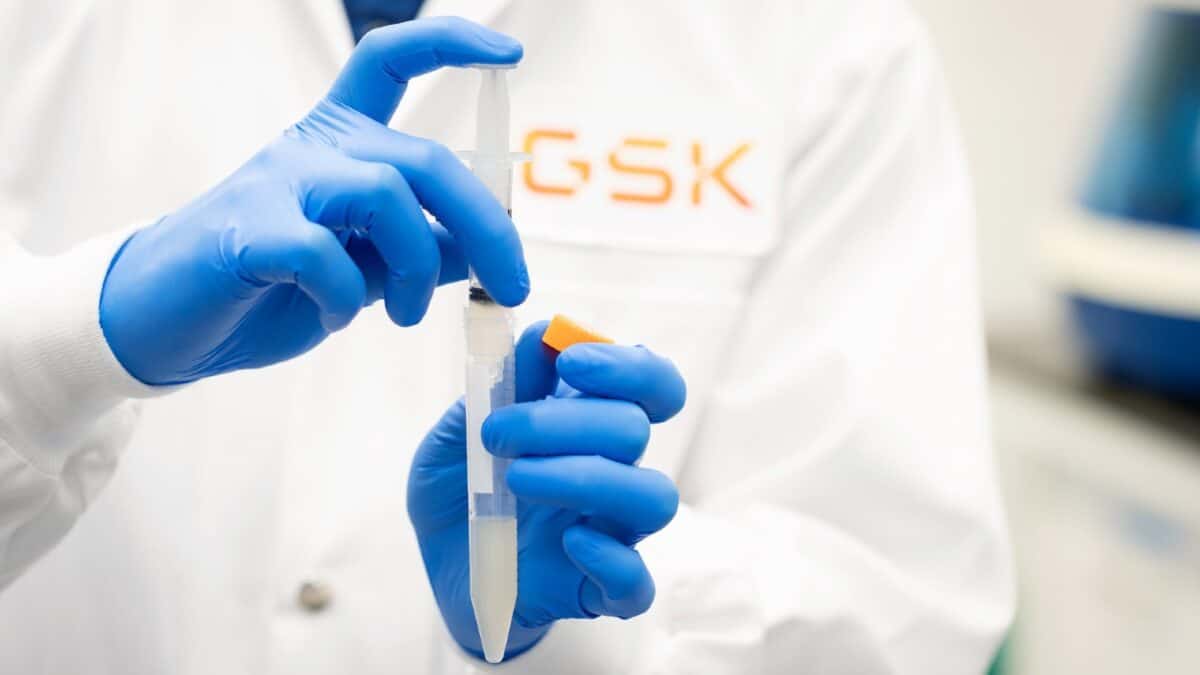GSK (LSE: GSK) shares fell 3.4% to 1,401p today (30 October) after the drugmaker released a trading update covering the third quarter (Q3).
This means the FTSE 100 stock is down 16% in the past six months and 21% over five years.
Should I invest in GSK shares at £14? Or is this an investment to avoid? Let’s dig in.
A mixed Q3
Despite its disappointing share price performance, GSK is still the UK’s eighth-largest listed company. It has a market cap of £58bn and brought in over £30bn in revenue last year.
The company reported a mixed quarter today. Sales of £8.01bn were a little below what analysts were expecting (£8.05bn), but core earnings per share (EPS) of 49.7p grew 5% and beat the forecast EPS of 43.6p.
Specialty Medicines sales grew by 19%, driven by strong performances in oncology (+94%), HIV (+12%), and respiratory/immunology (+14%). Sales in General Medicines rose by 7%, with respiratory treatment Trelegy showing strong growth of 16%.
This year so far, GSK has reported 11 positive phase 3 trials. So the pipeline is strengthening.
Offsetting this, vaccine sales slumped 15%, with shingles jab Shingrix down 7% and Arexvy (for respiratory syncytial virus (RSV) down 72%. Management now expects 2024 vaccine sales to decline by low single-digits, revising its previous forecast of low-to-mid single-digit growth.
The Arexvy development is disappointing for GSK shareholders, as it seemed like a new high-growth market. RSV is a common winter illness and revenue from this new vaccine surpassed £1bn last year.
However, a US advisory committee revised its guidelines for RSV vaccinations earlier this year, essentially capping the market. Meanwhile, Moderna has had its own RSV vaccine approved, along with Pfizer. So there’s a fair bit of competition in that market now.
Zantac settlement
Arguably the biggest development this year is the $2.2bn settlement in the US to end most of its lawsuits in relation to Zantac, the heartburn drug that allegedly caused cancer. This issue has long been a massive black cloud hanging over the stock.
In the quarter, the company booked a £1.8bn charge for the Zantac settlement, which led to a sharp drop in total operating profit. Hence the core bit in the EPS figures.
CEO Emma Walmsley said: “[We] resolved the vast majority of Zantac litigation in the quarter, to remove uncertainty and so we can focus forward. All this means we are on track to deliver our 2024 guidance.”
| 2024 guidance (constant exchange rates) | |
| Sales | +7%-9% |
| Core operating profit | +11%-13% |
| Core EPS | +10%-12% |
Would I invest?
There’s always the possibility of further litigation appearing in this industry. It’s a key risk, along with clinical trial setbacks and regulatory changes.
However, the Zantac settlement figure was well below what many first feared. For me, it removes a lot of doubt and distraction.
Despite this, the shares are still trading at a steep discount to peers. In fact, the forward price-to-earnings multiple for 2025 is just 8.4. AstraZeneca‘s is double that.
Meanwhile, GSK expects to declare a full-year dividend of 60p per share. This gives the stock a decent 4.3% dividend yield, which adds further weight to the investment case, in my opinion.
I’ve already got enough sector exposure in my portfolio through Moderna and AstraZeneca. But if I hadn’t, I’d consider buying GSK shares at £14.





